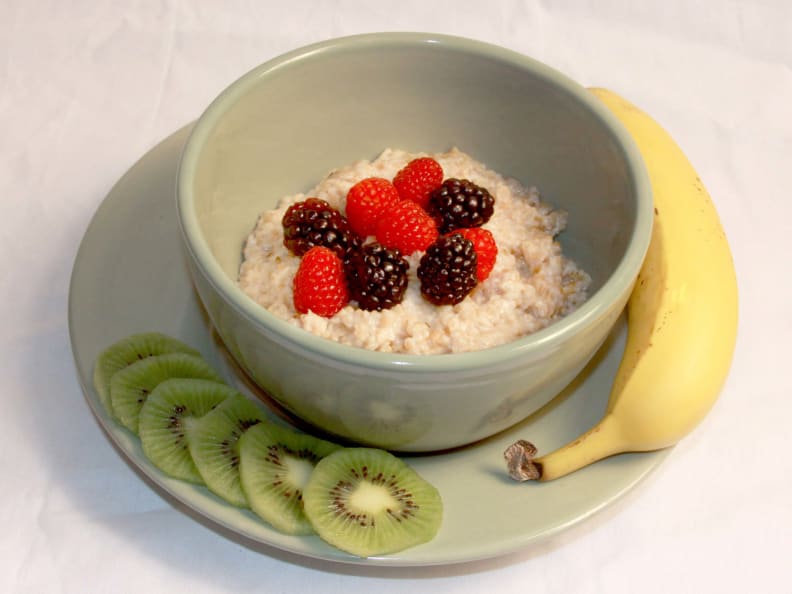Is Breakfast Losing its Place at the Table?
They told us breakfast is the most important meal of the day. Maybe the requisite first meal isn’t all it’s cracked up to be?
 Credit:
Credit:
Recommendations are independently chosen by Reviewed's editors. Purchases made through the links below may earn us and our publishing partners a commission.
For years, we’ve piled on the fruits and whole grains each morning, safe in the knowledge that "breakfast is the most important meal of the day."
The reason, we were told, is that eating a good breakfast fires up the metabolism. (You’re breaking the fast after a night’s sleep!) That first meal provides energy and nutrients that keep us focused throughout the day. And public health authorities commonly recommend consuming breakfast to help maintain a leaner figure.
We’ve never asked for the evidence—we don’t argue with experts. But maybe we should. As New York Times health columnist Gretchen Reynolds ascertained, “scientific support for (it) has been surprisingly meager.”
The August issue of The American Journal of Clinical Nutrition, offers two separate studies that appear to refute the importance of breakfast.
In one study, conducted by the University of Alabama at Birmingham, researchers followed 300 volunteers who wanted to lose weight. Some were told to skip breakfast entirely, others were asked to eat breakfast daily; the rest were told to continue their existing dietary routine.

Oatmeal with low-fat milk and fruit is an optimal way to start the day. [Credit: Flickr user “MD Anderson’s Focused on Health” (CC BY-NC-SA 2.0)]
The result: All three groups reported almost no weight reduction—about 1 pound each—at the end of the 16-week study. The report concluded that, contrary to widely espoused views, “a recommendation to eat or skip breakfast for weight loss … had no discernable effect on weight loss in free-living adults who were attempting to lose weight.”
Another study—this one about breakfast's effect on metabolism—was conducted by the University of Bath, in England. Thirty-three relatively lean adults were asked to either consume breakfast or fast during the study period.
“Contrary to popular belief, there was no metabolic adaptation to breakfast with limited subsequent suppression of appetite,” the study concluded.
Those who ate a 500-calorie breakfast showed markedly higher calorie burn through light morning activity, enough to offset the 500 calories consumed. Those who skipped breakfast were less active in the morning, but they were not more likely to eat large meals later in the day.
Wait—500 calories? That’s a not-insubstantial breakfast. And burning off 500 calories requires a serious workout (think one solid hour of Zumba).
Why we’re not giving up breakfast—yet
A number of cultures, especially European, get by famously on modest breakfasts. And certainly there are plenty of Americans who skip out on breakfast and live to tell the tale.
But neither of these recent studies directly address exactly what the participants ate.
Was breakfast comprised of the relatively empty calories contained in croissants and jam, or sugar-charged Cocoa Puffs? Was their breakfast eggs and bacon—high in fat, but also rich in protein? Or were participants beginning their day with a hearty bowl of oatmeal with low-fat milk and fresh berries?
Doesn’t the composition of our caloric intake count for something in nutrition?
Of course it does. So although we’re delighted to see old wives’ tales and other superstitions laid low, we’ll wait for further, more comprehensive research before we abandon the breakfast club.
Hero image: Flickr user "Andrea Goh" (CC BY 2.0)

